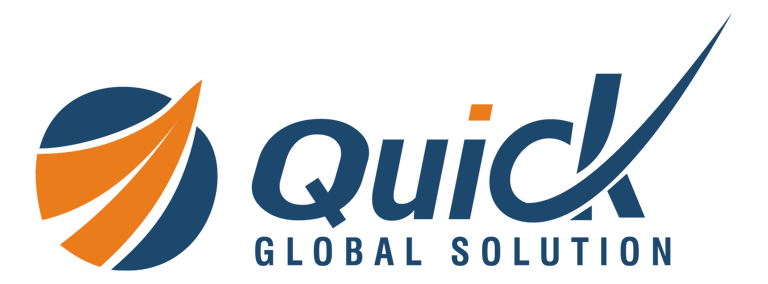Global Careers Await: The Urgent Demand for Nurses and IT Specialists
7/12/20255 min read


The Growing Global Demand for Nurses
The nursing profession is experiencing an unprecedented surge in global demand, driven by several influencing factors. One primary contributor is the aging population in many countries, where a notable increase in life expectancy has led to a higher prevalence of chronic illnesses, requiring ongoing medical attention and comprehensive care. According to the World Health Organization (WHO), there is an estimated global shortage of 6 million nurses, particularly in low- and middle-income countries. This deficit presents a unique opportunity for nursing professionals to elevate their careers internationally.
The nursing shortage is not only evident in developing regions but also affects developed countries struggling to meet the healthcare needs of their elderly population. With approximately 30% of the nursing workforce in the United States reaching retirement age within the next decade, the demand for new nursing professionals is expected to rise significantly. This trend highlights the critical need for skilled nurses, particularly in specialized fields such as critical care, geriatrics, and mental health, where expertise is increasingly sought after.
Furthermore, the ongoing impact of the COVID-19 pandemic has exacerbated the existing nursing shortages, making it imperative for healthcare systems worldwide to recruit and retain more nurses. As institutions prioritize patient care, the call for well-trained nursing professionals in various capacities has intensified. Nurses are being sought in hospitals, community health settings, and even telehealth platforms, broadening the career landscape for those in the profession.
Ultimately, the global demand for nurses offers an array of career opportunities, allowing professionals to work in diverse environments and contribute positively to public health initiatives. As nursing continues to evolve with advancements in healthcare technology and treatment modalities, the roles available to nurses are expanding, offering exciting prospects for those considering a nursing career on an international scale.
The Rise of IT Specialists in the Global Job Market
In today's technology-driven world, the demand for IT specialists has become increasingly urgent and pronounced. As organizations across diverse sectors continue to integrate advanced technologies into their operations, there is a significant surge in job openings for professionals who possess the requisite skills and expertise. The reliance on digital platforms has not only transformed traditional business processes but has also created a robust ecosystem where IT specialists play a pivotal role in ensuring operational efficiency and security.
One of the notable trends is the increasing focus on cybersecurity. With the rise in cyber threats, companies are prioritizing the protection of their data and digital assets. This has led to a heightened demand for cybersecurity experts who can identify vulnerabilities, mitigate risks, and develop strategies to safeguard sensitive information. Industries ranging from finance to healthcare are investing heavily in cybersecurity measures, thus creating numerous career opportunities for skilled IT professionals.
Moreover, cloud computing is another area witnessing substantial growth. As businesses migrate their operations to the cloud for improved scalability and efficiency, the need for IT specialists proficient in cloud infrastructure and services has intensified. Companies such as Amazon Web Services (AWS), Microsoft Azure, and Google Cloud are at the forefront of this transformation, actively seeking IT talent capable of managing and optimizing cloud environments.
In addition, data analytics has emerged as a critical competency in the global job market. Organizations are increasingly leveraging data to drive decision-making, enhance customer experiences, and identify market trends. Consequently, there is a robust demand for data analysts and data scientists who can interpret complex datasets and provide actionable insights. Leading organizations across sectors are keen on hiring individuals who can harness data to propel business growth.
As these trends exemplify, the landscape of IT careers is vast and continually evolving. The urgent demand for IT specialists reflects a paradigm shift towards technology-centric operations, presenting remarkable opportunities for those looking to forge a career in this dynamic field.
Skills and Qualifications Needed for Global Careers
To embark on a global career, particularly in the fields of nursing and information technology, professionals must acquire a specific set of skills and qualifications that enable them to thrive in diverse environments. For nurses, essential educational requirements typically include a Bachelor of Science in Nursing (BSN) or equivalent credential, as well as licensure in the country where they wish to practice. Additionally, certifications in specialized areas such as Pediatric, Geriatric, or Critical Care Nursing can significantly enhance employability in international settings, ensuring nurses meet various healthcare standards across borders.
In the realm of information technology, a solid educational foundation, often characterized by a degree in Computer Science, Information Technology, or a related field, is crucial. Obtaining relevant certifications such as CompTIA, Cisco Certified Network Associate (CCNA), or Microsoft Certified Solutions Expert (MCSE) can provide an added advantage, demonstrating a commitment to continuous professional development and expertise in specific technical areas.
Moreover, soft skills play an essential role in the success of global careers in both nursing and IT. Effective communication and cultural competence are vital, as professionals often collaborate with colleagues and clients from diverse backgrounds. Adaptability is equally important, particularly in rapidly changing industries like IT, where technology evolves at an unprecedented pace. Professionals must be able to navigate new technologies and work methodologies seamlessly, adapting their strategies to different cultural contexts.
Case studies highlight the journeys of individuals who transitioned to global careers, exemplifying the importance of these skills and qualifications. For instance, a nurse who successfully relocated to Australia emphasized the significance of cultural competence in providing patient-centered care. Similarly, an IT specialist who took on a role in Europe noted that strong communication skills were crucial in bridging the gap between technical teams and non-technical stakeholders. These real-life experiences serve as motivation and provide invaluable insights into the qualifications and skills required to pursue a successful global career.
Navigating the Challenges of Global Opportunities
Embarking on a global career as a nurse or IT specialist presents numerous opportunities, yet it also comes with its own set of challenges. One of the primary hurdles is navigating visa regulations, which vary significantly by country. Professionals must familiarize themselves with the immigration policies of the destination country and ensure they have the correct work permits or visas. Consulting with immigration experts or using resources provided by professional associations can greatly assist in understanding these legalities.
Cultural differences also represent a vital challenge when pursuing international employment. Nurses and IT specialists must adapt to new work environments, which might differ markedly from what they are accustomed to. Learning about local customs and communication norms can significantly ease this transition. Engaging in cultural training programs or workshops prior to relocation can be beneficial, allowing professionals to better understand workplace expectations and patient interactions in a foreign context.
Additionally, credential recognition is a crucial aspect to consider. Various countries have differing requirements regarding the validation of professional qualifications. It is essential for nurses and IT professionals to research the licensing requirements in the host country. Contacting local regulatory bodies or professional organizations will provide clarity on which documents and equivalencies are necessary to secure employment. Preparing these documents in advance and staying informed about the processes involved can prevent delays in job applications.
For those looking to expand their careers globally, various resources are available to assist professionals at every stage. Organizations such as the International Council of Nurses (ICN) and the Information Technology Industry Council (ITI) offer valuable guidance and support. Utilizing these resources can make navigating the complexities of global career opportunities more manageable, ultimately empowering nurses and IT specialists to successfully pursue their international ambitions.
Address
C 73 Prem Complex New Delhi 110065
Contacts
+91-9697909593,9953597970
quickglobalsolution@gmail.com
